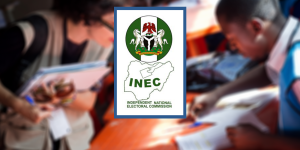WORLD BANK, IMF AND AFDB: STRATEGIC INVESTMENT IN FARMERS-HERDERS IN WEST AFRICA
World Bank, International Monetary Fund and Africa Development Bank need strategic investments in farmers-herders to prevent future clashes. The 21st century strategic investment in West Africa will be pumping water from southern Nigeria to desert farmland in Niger Republic, Chad, Mali and others. The project will stop the clashes between the herders and farmers across West Africa.
By financing the transfer of water project to desert farmlands in northern Nig eria, World Bank can resolve herder-farmer conflict in Nigeria. World Bank could help resolve herder-farmer conflict in Nigeria by embarking on massive construction of water pipelines from southern parts to farmlands in northern Nigeria. This will help resolve some of the herder-farmer clashes in Nigeria. World Bank will play a key role in financing of the water pipelines project. It will help restore peace to herders-farmers clash in Nigeria.
World Bank must discuss and develop consensus on the different solutions to restore water to farmlands in the desert, including the Inter Basin Water Transfer (IBWT) Project from the Rivers in southern Nigeria to the farmlands in the northern Nigeria. We must pump water from Rivers in southern Nigeria to the farmlands in the northern Nigeria.
Tapping the excess water of the River Niger and Benue and pumping it to the farmlands in the desert north and Chad is among the suggestions to solve growing water needs in the desert farmlands in the northern Nigeria. Pumping water from River Niger and Benue to the north is among the options to counter future water shortages in the farmlands in the north. Federal Government should consider building one of the world’s largest pipelines to transport water from the River Niger and Benue to supply water to desert farmlands in the north.
Northern Nigeria needs a network of underground pipelines bringing water from both River Niger and Benue pumped underground through a double pipeline. The project’s eventual goal is to move billion cubic meters of water across the country every year, more than there is in the River. The infrastructure includes some of the longest canals in the world; pipelines that weave underneath riverbeds; a giant aqueduct; and pumping stations powerful enough to fill Olympic-sized pools in minutes. It will be one of the world’s largest water-transfer project, unprecedented both in the volume of water to be transferred and the distance to be traveled—a total of 4,350 kilometers (2,700 miles), about the distance between south and farmlands in the north. Agriculture in the desert north needs long-distance water transfer systems of large scale.
Agriculture accounts for 70% of all water withdrawals globally. Irrigated land is more than twice as productive as rain-fed cropland. The Bank helps countries improve water management in agriculture to achieve Sustainable Development Goals on efficient use of water as well as on eliminating hunger. Resolving this apparent quandary requires a thorough reconsideration of how water is managed in the agricultural sector, and how it can be repositioned in the broader context of overall water resources management and water security.
Improving the efficiency of water use in agriculture will also depend on matching off-farm improvements with incentives and technology transfer for on-farm investments in improved soil and water management and improved seeds. Options such as enhanced seeds, low-till, alternate wetting and drying, sustainable rice intensification, and others exist, but require matching improvements in water delivery systems to provide on-demand service, with the use of information technology like soil moisture sensors and satellite evapotranspiration measurement to improve efficiency and productivity of water in agriculture
A shortage of water and pasture is triggering similar conflicts across West Africa. Formerly fertile land is turning to desert, the result of prolonged drought and changing weather patterns. No longer able to graze their typical pastures, herders are venturing into the southern part of the region. As they journey south, they encounter swathes of farmland, put in place to feed an ever-growing population. With no other options, the cattle graze on farm crops, sparking clashes between herders and farmers. As resources dwindle, the conflict is becoming more complex, underpinned by ethnic, religious, and political grievances.
The immediate driver of the rising violence is of course the increasing competition for land and water, which are themselves negatively impacted by the effects of climate change and related environmental factors…The violence threatens to tip us over the edge into the realm of catastrophe.” –Yemi Osinbajo, the Vice President of Nigeria, in reference to the violence between herders and farmers in the country. Although herder-farmer conflict is an issue throughout West Africa, it has been especially violent in Nigeria in recent years.
There are more than 60 million Number of cattle in West Africa and the Sahel. There has been an increase in clashes over water and pasture throughout the region and the Sahel. 50-75 percent Amount of land in northern Nigeria that is turning to desert, forcing herders to the south. 371 Number of incidents in central Nigeria involving herders and farming communities between 2011 and 2015, compared to 18 incidents between 1997 and 2010.
As the water level and groundwater level drop, more and more people have tried to gather around the water’s shortening periphery. This has led to all sorts of conflict between newly arrived and established land-owners or cattle raisers and peasant farmers. With this shrinking has come many social problems that have started spilling into neighbouring countries
World Bank could help resolve the problem of nomadic herdsmen locally known as the Fulani which have been forced to migrate down south in search of green pasturelands and water resources for their livestock. These nomads have been said to come from Niger, Chad and Mali but their activities have interfered with the agricultural lifestyles of peasant folk and recently, as many as farmers and herdsmen have been killed in an assault by disgruntled local people, complaining that the livestock have wandered into their farms and destroyed their produce. The Fulani themselves have been accused of murdering people, coupled with rape and other cases in southern region.
![]()



